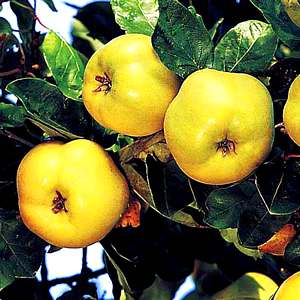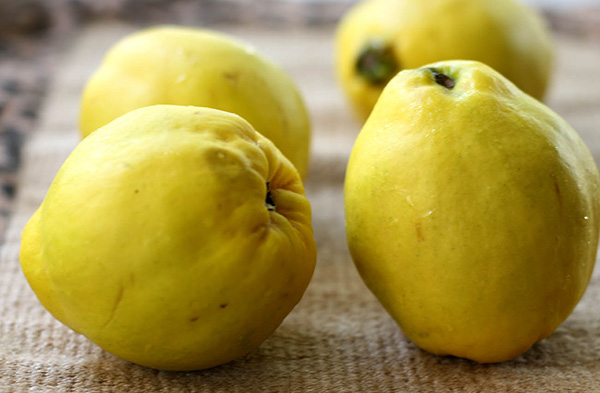Quince is little known as a natural remedy that effectively acts on liver, digestive and respiratory diseases. In a single fruit there is an impressive repository of vitamins (A, B, C, PP), mineral salts, carbohydrates and fiber. Below are some of the health benefits of quinces:
– In the form of fresh juice, quince help in treating pancreatic insufficiency. You can drink three times daily half a glass of juice. It is necessary to mention that a fruit squeezer is needed, this is not possible by hand.
– A recent research conducted in Japan showed that the in the peel of quinces are antiviral substances that inhibit the growth of microorganisms that trigger hepatitis A, B and C. To stimulate liver function, is recommended a diet of a month with fresh quince nectar.
– Runny noses, lung diseases, tuberculosis is treated as an adjunct, with quince juice.
– Quince can help for a good digestion and the syrup acts favorably in the event of diarrhea, uterine bleeding and hemorrhoids.
– Quinces are indicated in intestinal infections, including the lower colon, noting that the quince juice is contraindicated in case of constipation.
– Quinces with honey and mixed breeds, taken one pound per day, can fight against colitis.
– Morning nausea disappears with a half-eaten quince on an empty stomach.
– Quince leaves are also useful against diarrhea, as an infusion (tea).
– Maceration of quince score is useful in cases of anemia, but you should not exclude the specific medications prescribed by your doctor.
– Cancerous diseases can be ameliorated with quince, consumed as such or in the form of nectar from the pulp and peel. It has been shown that certain substances contained in quince (especially vitamin B17) helps destroy malignant cells without impairing the normal cells.
– Against frostbites can be prepared a cold soak, a tablespoon of seeds in 200 ml water. Let it soak for two to three hours, strain and apply locally with compresses.
As always, keep in mind that these traditional methods have proven, not once, their amazing utility. Their application, however, does not exclude the doctor’s advice, which considers both the utility on a case by case basis, and any contraindications that should not be neglected.

